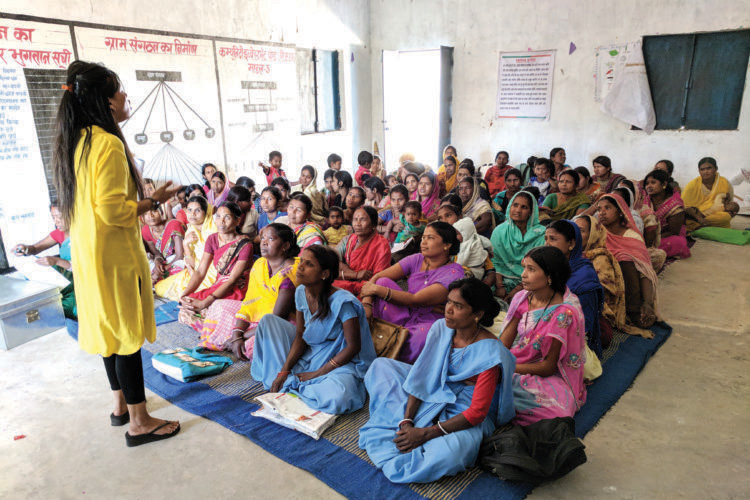St Andrews Prize for the Environment 2020
Finalists Announced for the 2020 Prize
Three global finalists have been selected for the prestigious 2020 St Andrews Prize for the Environment.
Following entries from around the world, the finalists for the US$100,000 Prize were selected by a global panel of experts representing conservation, sustainable development, engineering, economics and the University of St Andrews.
The finalists for the 2020 Prize are:
- Dirty Girls of Lesvos – Reducing Landfill Waste from Humanitarian Relief Efforts
- Conservation Through Public Health – Integrating Gorilla and Community Health
- The SmartFish Group – Value Rescue of Artisanal Fisheries
The winner will receive US$100,000 and the runner(s)-up will receive US$25,000.
The Prize is an environmental initiative led by the University of St Andrews that recognises global projects which make significant contributions to environmental issues and concerns with a focus on sustainability, conservation, biodiversity and community development.
Since its establishment in 1998, the Prize has awarded over US $2 million in funding to environmental projects around the world, supporting a wide range of initiatives that address diverse topics including sustainable development, food security, recycling, health, renewable energy and community education. Entries to the Prize have been global, local and/or scalable outlining how they will socially and economically impact the communities where they are based.
The finalists’ presentations will be heard at a seminar at the University of St Andrews on Thursday 27 February 2020, and the winner will be announced later that evening. The award will go to the project that the judges believe displays the best combination of science, economic realism and sustainability.

The three finalists for the St Andrews Prize for the Environment 2020 are:
Dirty Girls of Lesvos – Reducing Landfill Waste from Humanitarian Relief Efforts
Dirty Girls is a pioneer of the simple environmental practice of washing used materials in humanitarian relief efforts.
Dirty Girls collect good quality wet and dirty clothing discarded by thousands of people fleeing war and terror, arriving by sea on the island of Lesvos, reusing, washing and upcycling to distribute to those in need.
So far, Dirty Girls of Lesvos has saved over 1200 tons of material from landfill.
Conservation Through Public Health (CTPH) – Integrating Gorilla and Community Health
CTPH focuses on the interdependence of wildlife and human health in and around Africa’s protected areas. CTPH has three integrated strategic programmes: wildlife conservation, community health and alternative livelihoods.
Based in Uganda, CTPH is an award-winning leader in gorilla and wildlife conservation, championing the health of wildlife and ecosystems as well as humans and their livestock in and around Africa’s protected areas.
The SmartFish Group – Value Rescue of Artisanal Fisheries
SmartFish supports artisanal fishers’ livelihoods while addressing the global issue of overfishing.
SmartFish is a pioneer of fisheries improvement projects to support local artisanal fishermen to meet growing consumer demand for sustainable seafood. SmartFish supports the commercialisation of responsible artisanal fisheries products in markets that reward fishermen for the environmental and social values of their fishing
To find out details about previous prize winners and finalists, including project locations, visit the St Andrews Prize website.
Issued by the University of St Andrews Communications Office.